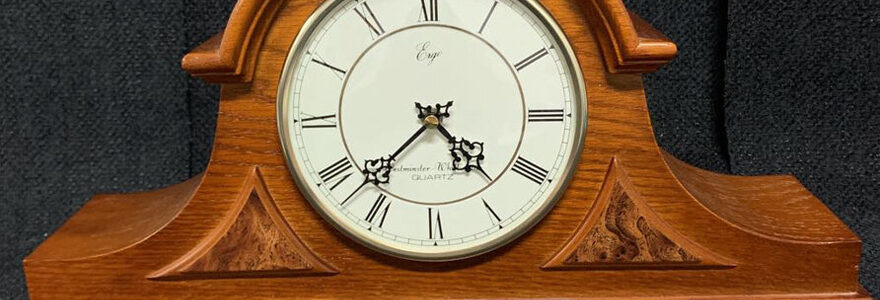To determine the value of your mantel clock, you must first learn the various traits and characteristics of a mantel clock. Then you must learn how to identify these characteristics in a mantel clock or an antique clock. For example, a mantel clock should have a mechanism that runs the clock's hands by striking a bell on the clock. Also, the clock should have a dial with Roman numerals and Arabic numbers, as well as a calendar. Many mantel clocks have a pendulum that swings back and forth. This article is not meant to teach you how to sell your mantel clock. This article is meant to teach you how to determine whether your mantel clock is valuable.
These are the things you should look for to determine how worth your mantle clock is.
1. Marker's Signature or Label
Markers signature is a good way for you to determine the value of your mantel clock. Markers' signatures are the mark of the maker. This is the first thing you should check when determining the value of your mantel clock. It is important to know who made the clock because you can expect a higher quality clock if it is a well-known clockmaker. Sometimes, the maker will put a signature on their work of a certain quality. This is done to make it easier for people to determine the quality of their work. La Pendulerie, for example, which is a highly esteemed watchmaking company, puts their signature on their clocks. Visit lapendulerie.com for more about mantel clocks and antique clocks.
2. The Materials of the Clock
The clock materials are very important in determining whether your clock is valuable. All mantel clocks are made out of metal. The metals used in making mantel clocks are silver, gold, brass, and copper. The metals used in making mantel clocks are different depending on the age of the clock. The clock is then plated with a layer of silver, gold, brass, or copper. The plating is then polished to give the clock a shiny finish.
3. Rarity
The rarity of your mantel clock is very important in determining the value of your clock. Some clocks are very rare to find, and if you have one of these clocks, you can expect more for your clock. For example, if you have a clock that was made many years back and the demand for the clock is high, you can expect a higher price for your clock because many people want to buy these rare clocks.
4. Get a Reliable Appraisal
You should not just go on the internet and look up the value of your clock. You should have a reliable appraiser who deals with antique mantel clocks, antique wall clocks, vintage wall clocks, etc., to look at your clock. The reliable appraiser will be able to give you a fair price for your clock, and you will know whether you are getting a fair price or not.
5. Know the Year and the Maker of the Clock
It is important to know the year and the maker of your clock. If you do not know the year and the maker of your clock, it's possible you won't be able to determine the value of your clock. You should see the date that the clock was made, and you should know the maker's name.
6. Get a Certificate of Authenticity (COA)
It is important to get a COA if you have a valuable antique clock. The COA will provide you with information about the quality of your clock and the materials used to make your clock. They also provide you with information about the maker of your clock.
7. Condition of the Clock
The condition of the clock is very important in determining the value of your clock. The condition of your clock can tell you whether your clock is in good working condition or not. You should know if the clock is missing parts, has broken parts, or is in good condition. To know how valuable your mantle clock is, it should fall into the following categories; a mint condition which means that the clock is perfect and does not need repairs, and there are no missing pieces and no cracks. The next is an excellent condition which means the clock has some minor flaws. The clock might have been damaged but repaired by an expert. The last category is a good condition which means the clock has a few flaws, e.g., discolorations, cracks, or some signs of repair.
Conclusion
With the above information, you should be able to determine whether your clock is valuable or not. If you are unsure about how valuable your clock is, you should look for a reputable appraiser to help you determine the value of your clock.
